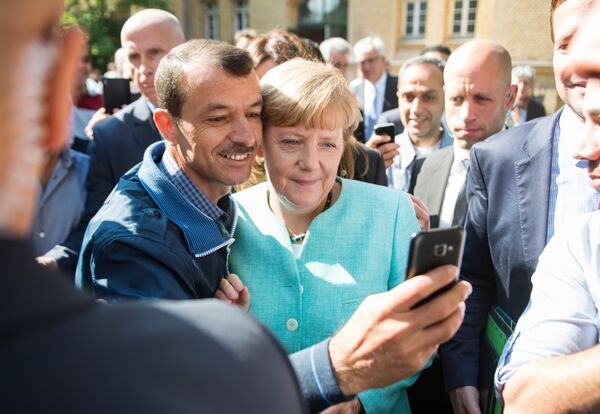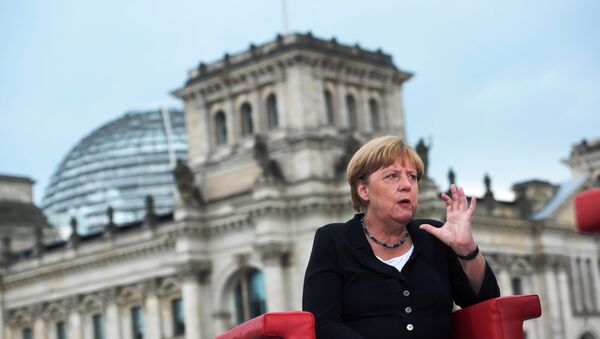In a rather self-critical admission, Merkel said Germany "ignored" the severity of the migration issue for a decade, noting that instead of addressing the issue of refugee arrivals into Europe, Berlin "let Spain and neighboring countries deal with that."
"There are political issues that one can see coming but don't really register with people at that certain moment — and in Germany we ignored both the problem for too long and blocked out the need to find a pan-European solution," Merkel told German newspaper Sueddeutsche Zeitung.
#Merkel NOW agrees that mistakes have been made in the #refugee-crisis, but clings to "Wir schaffen das". Elections in East GER this week!
— Lars Pellinat (@Lars9596) August 31, 2016
The remarks come one year after Merkel's famous "wir schaffen das" (we can do this) comment, which she replied when asked about the rising numbers of refugees entering Europe.
The "wir schaffen das" slogan has since been jumped on by Merkel's political rivals, who have been highly critical of the chancellor's "open-door" refugee policy, while Merkel's conservative CDU party is suffering from a significant drop in support in the opinion polls ahead of next year's federal election.
Merkel Admits Refugee Distribution U-Turn
Merkel's rather frank self-critique also saw the chancellor admit that Germany, who is now a leading proponent of a refugee redistribution system across the EU, was originally against the idea, preferring in the past to let Spain and other EU periphery countries deal with the issue of refugees on their own.
"Back then, we also rejected a proportional distribution of the refugees," Merkel said, admitting that Berlin has since performed a U-turn in its support for EU-wide border agencies such as Frontex to deal with the issue.
Reminder that Merkel, faced with the refugee crisis, performed a u-turn and did what she thought was right, at huge political cost.
— Jonathan Rothwell (@jrothwell) August 15, 2016
"We said we would deal with the problem at our airports since we don't have any other external EU boundaries. But that doesn't work.
"We didn't embrace the problem in an appropriate way […] That goes as well for protecting the external border of the Schengen area," she said.
The issue of refugee distribution is now a matter of huge divide across the bloc.
While Germany, Sweden and other countries support the idea, a number of other member states, including Hungary, Poland, the Czech Republic and Slovakia have vehemently rejected any such proposals.
State Sec Csaba Domotor says EU's plans mean a huge risk to #Hungary, that's why everyone should vote no in #referendum on quotas
— Krisztina Bolczek (@Kriszti_Bolczek) August 23, 2016
There have also been concerns over the future of EU-Turkey refugee deal, for which Merkel was a strong supporter, with fears diplomatic disputes between Brussels and Ankara could lead to the agreement's collapse, and see another migration wave enter Europe.
Berlin Stands Firm
The admissions come as Merkel's government stands firm on its "open-door" refugee policy, and is likely to give political opponents more ammunition ahead of upcoming regional elections and next year's German federal election.

While supporters and aid agencies have applauded the German government's humanitarian actions in providing asylum to many people fleeing wars and oppression in the Middle East, critics say the policy spurred on more migration from the Middle East, which would lead to more stress being placed on the social systems of EU governments.


